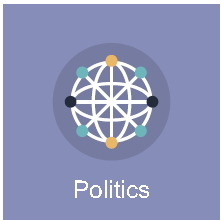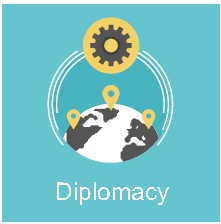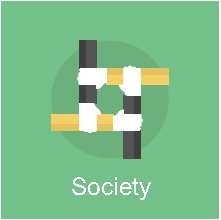
[Politics] Political reforms fizzle
Politicians wax and wane, but none have done so as quickly and dramatically as Rep. Ahn Cheol-soo of the main opposition New Politics Alliance for Democracy. In 2014, Ahn rose to the heights of being cochairman of the main opposition, despite having little real powerbase. However, with his “new politics” achieving little and his party’s election failures, he resigned as the cochairman.
The result for the June 4 local elections were disappointing to the main opposition party, which took nine of the 17 metropolitan mayoral and gubernatorial seats. The ruling Saenuri Party fared better than expected with eight victories, and stumped the NPAD’s strategy of using the elections as an opportunity to “pass judgment” on the Park Geun-hye administration. The results were further mixed by the conservatives’ sweeping victory in lower-level administrative offices, and the progressives’ dominance in the races for metropolitan and provincial educational chiefs’ posts.
Reform was a major issue for the country’s political arena in 2014, with both conservatives and progressives making much show of taking steps. The reforms were mainly meant to reduce the privileges of politicians and those in power as well as the power wielded by the central party. Despite the efforts, few visible results were achieved. The Saenuri Party narrowly managed to draw up half-baked reform plans while the calls to revise the Constitution were quashed.
The National Assembly managed to pass the budget bill for the coming year before the legal deadline for the first time in 12 years. Although the process was hampered by discord over the welfare budget and the plans to reform the public sector pension system, the parties pushed the bill through on time. While the parties touted their timeliness, the 100-day regular session of the National Assembly was at best a half success with more than half of the pending bills being pushed to the extraordinary session.

[Diplomacy] Ties frozen with Japan, N.K.
Relations between Seoul and Tokyo went further downhill as Japanese Prime Minister Shinzo Abe spurred revisionist foreign and security policies without reflecting on the country’s imperial past. As a staunch ally of both countries, Washington sought to perform a balancing act, arranging a three-way summit in March on the sidelines of a multilateral conference in The Hague. Seoul also took steps to defuse tension such as through bilateral ministerial talks and a high-level trilateral meeting including China. With negotiations making little progress over the wartime sex slavery issue, a thaw ― alongside a one-on-one summit ― remains far off.
North Korea’s top three officials made a surprise visit to the South in October, boosting hopes for cross-border reconciliation. The one-day trip by Hwang Pyong-so, Choe Ryong-hae and Kim Yang-gon was primarily to attend the closing ceremony of the Asian Games in Incheon, led to meetings with Prime Minister Chung Hong-won, presidential national security chief Kim Kwan-jin and other senior Seoul officials. But the mood waned quickly as the two Koreas exchanged fire only days later over the launch of anti-Pyongyang leaflets by South Korean activists.
In February, the two Koreas held their first round of reunions of families displaced by the Korean War in over three years. Some 700 people from both sides of the border reunited with their loved ones at the North’s Mount Geumgangsan resort. The event followed the first high-level inter-Korean dialogue since 2007, which opened a communication channel between Kim Kyou-hyun, vice chief of Cheong Wa Dae’s National Security Office, and Won Dong-yon, deputy head of the United Front Department of the North’s ruling Workers’ Party.
North Korea faced the strongest-ever pressure from the international community to improve its dire human rights situation. The U.N. Commission of Inquiry unveiled the most comprehensive and detailed survey to date on the issue in February, detailing rape, murder, torture and other cases of “systematic, widespread and gross” rights violations. The bombshell report led the General Assembly to endorse a resolution calling for holding the perpetrators into account, and the Security Council to formally put the issue on its agenda last week.

[Education] History, educational spats
In January, education circles were embroiled in a dispute over supposedly biased and defective high school history textbook by Kyohak Publishing. Civic groups and liberal lawmakers said the textbook was ideologically biased toward conservatives, while experts took issues with its quality, such as content with questionable sources. Only a handful of schools opted to use the book, most of whom eventually bailed out after a slew of protests from students and their parents.
Muddled with disputes over difficulty and pelleted with complaints over defects, Korea’s 20-year-old college entrance exam is facing major reform next year. This year’s exam marked the first time that two questions had been found to be fundamentally flawed, dealing a heavy blow to the education authorities who were just months removed from losing a yearlong legal dispute over a flawed question in last year’s exam.
Seoul Education Chief Cho Hi-yeon moved to abolish autonomous private high schools, which he claims undermine equality in educational opportunities. In October, he canceled designation for six autonomous schools. But Cho faced a major setback the next month when the decision was overridden by the Education Ministry.
In a landmark ruling in June, the Korean Teachers and Education Workers’ Union was outlawed by a Seoul court. It marked a closure on months-long legal battles between the government and the controversial left-leaning teachers’ group over its status as a legal union. The group received a minor boost in September, when the Seoul administrative court granted it temporary legal status until the final ruling was reached, which could be years as the case is widely expected to go to the Supreme Court.

[Security] Abuse, graft trouble military
A series of military abuse cases has revealed the deepening antagonism among conscripts particularly at frontline units, where a strictly hierarchical culture prevails. The cases resulted in deaths, suicides and even a shooting spree, prompting calls for a major reform of the abusive culture at barracks. For the reform, a panel consisting of civilian experts, military leaders and parents was established in August. The panel earlier this month announced a series of measures including introducing an ombudsman to enhance human rights for draftees.
In November, the government launched a large-scale investigation team of civilian and military prosecutors, state auditors, police and tax officials to stamp out rampant corruption in the local defense industry. In the wake of a series of corruption cases involving current and former military officers, calls had mounted for sweeping reform of the state defense procurement mechanism. Pointing to a string of bribery cases, critics have berated the government for wasting taxpayers’ money at a time when North Korea’s military threats are escalating.
South Korea and the U.S. agreed in October to a “conditions-based” transfer of wartime operational control in light of evolving North Korean threats, finalizing their decision to delay the transfer, previously scheduled for December 2015. They did not set a date for the transition. It was the second time that the allies agreed to a delay. Initially scheduled for April 2012, the transfer was first postponed to 2015 in June 2010 after a series of provocations by the North.
Also in October, Seoul and Washington agreed to station their Combined Forces Command in its current location in central Seoul until the OPCON transition, and retain the 210 Fire Brigade, the U.S.’ key counterfire unit, north of Seoul until the South’s artillery reinforcement plan is completed.
In June, U.S. Forces Korea Gen. Curtis Scaparrotti raised the need to deploy the Terminal High-Altitude Area Defense system, a key element of the multilayered U.S. missile defense program, to counter North Korea’s evolving missile and nuclear threats, sparking an intense political controversy here. Washington’s push for the THAAD deployment has left Seoul with a diplomatic dilemma, given that it has sought to enhance its strategic partnership with China ― its crucial partner for trade, tourism and efforts to denuclearize North Korea.


[Society] Sewol disaster sinks nation
On April 16, the 6,800-ton ferry Sewol sank in waters off southwestern Korea, leaving 304 dead. Nine bodies are still unaccounted for. Over 250 of the dead were teachers and students from Danwon High School in Ansan, Gyeonggi Province, who were on a field trip to Jejudo Island. The accident sparked a furious social uproar, with public criticism centering on allegations of lax safety regulations, and cozy relations among regulators and private sector officials in the maritime industry.
Rumors of there being a secret group meddling in state affairs came to a head in 2014 in what was dubbed “Chung Yoon-hoi gate.” In the scandal, Chung, a former aide of the president, was rumored to be meddling in state affairs and engaging the president’s brother, Park Ji-man, in a power struggle. Although the prosecution’s investigation determined that rumors were groundless, the developments reignited the bipartisan feud and highlighted the current administration’s closed-off image.
Sexual misconduct among former prosecutors also stole headlines. In August, former chief prosecutor of Jejudo Island Kim Soo-chang was accused of masturbating in public up to five times. Park Hee-tae, former prosecutor and speaker of the National Assembly, is under charges of sexually harassing a golf caddie. Park claimed he had touched the female victim’s breasts because she reminded him of his granddaughter.

[Health Care] Welfare, health in disarray
The Education Ministry’s decision not to provide financial support for the government-initiated free child care program sparked a standoff between the central government and local education chiefs, burdened with the entire costs of the sizable welfare policy. As education superintendents urged a government subsidy, the conservative faction took issues with the free lunch program ― introduced by progressive educators in 2010 ― and claimed that “excessive welfare policy” was taking up the budget for the necessary child care program. Finally a detente was achieved when the parliament agreed to indirectly fund the child care programs.
In September, the government announced it would push to raise tobacco prices by 80 percent ― 2,000 won ($1.95) raise per pack ― by January as part of its measures to decrease the country’s high smoking rate. The proposed plan, however, faced opposition from many politicians, who argued that it was an indirect way of increasing the taxes paid by the nation’s low-income population.
South Korean seniors received their first payout under the new basic pension program in July, which is to benefit the poorest 70 percent of Koreans aged 65 or older by giving them a monthly allowance ranging from 100,000 won to 200,000 won, a raise from 97,000 won from the previous program.
Following the Health Ministry’s announcement of the launch of the controversial pilot program for telemedicine services in September, the representative body of local health care providers has been fiercely protesting against the plan, arguing it would lower the quality of medical services and jeopardize the operations of local clinics and regional hospitals. The telemedicine bill is likely to go into effect next year.














